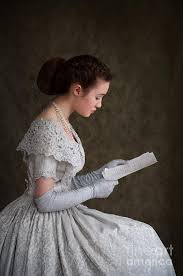Ann Evans: Hints & Tips For New Writers #9
27 January 2021
 Ideas! Without an idea we can’t get our story written. If you’re one of those people bursting with ideas, then hat’s off to you. For me, finding a great idea for a story – romance or otherwise, is always the hardest bit. Once I have the idea, the rest tends to flow naturally. But finding those ideas – that’s the tricky bit.
Ideas! Without an idea we can’t get our story written. If you’re one of those people bursting with ideas, then hat’s off to you. For me, finding a great idea for a story – romance or otherwise, is always the hardest bit. Once I have the idea, the rest tends to flow naturally. But finding those ideas – that’s the tricky bit.
So, if ideas aren’t leaping around in your head, pushing their way through the grey matter vying for supremacy, where are they lurking? And how can you go about seeking them out?
Well, ideas are everywhere. Here’s a quick list off the top of my head. I’m sure you’ll think of more:
- Real life situations
- Incidents in newspapers or in the news
- Agony aunts and problem pages
- Dreams and nightmares
- Overheard scraps of conversation
- Memories or stories from your past
- Photographs and pictures in magazines and the internet
- Your inner fears
- Visiting new places
- Buildings – from majestic to derelict
- History
- The actions or appearance of a person you spot
- Antique shops and car boots for items that spark ideas
- A theme: maybe you long to write a ‘rags to riches’ story
- An emotion: maybe you want to write about unbridled passion or jealousy
Looking at these I can honestly say that I’ve produced a story or book from every one of those starting points. Buildings in particular are always an inspiration for me – usually derelict or boarded up. Or a combination of buildings – the outside of one combined with the inside of another. Isn’t it liberating being a writer when you and your characters can inhabit anywhere you like – in your head at least!
Anything can spark an idea. The trick is to grab that spark and hold onto it until you can develop it into something more. Inspiration often strikes when we aren’t looking for it. Ideas can flit in and out of our heads at any time of day or night. Make sure you jot those ideas down when they come to you because in my experience they disappear as quickly as they come.
 Ideas notebooks are worth their weight in gold. Keep a box or folder to store cuttings, photographs and objects of interest. And of course, have files and folders on your PC for notes and images of people and places that might come in useful.
Ideas notebooks are worth their weight in gold. Keep a box or folder to store cuttings, photographs and objects of interest. And of course, have files and folders on your PC for notes and images of people and places that might come in useful.
With luck, your story idea might develop effortlessly, unfolding itself from start to finish with a logical string of events and actions that simply needs writing. On the other hand, you could end up with a confusing jumble of images, words and thoughts with no clear path in sight at all.
We all work differently, there is no right or wrong way. We find our preferred way of working – often through trial and error. Maybe you allow an idea to germinate in your head over time. Or you might prefer to write notes and character descriptions. Maybe you like to plot and plan on paper (or screen). Perhaps your method is to use bullet points, story boards, lists or post it notes. Try different ways of developing your ideas. I’ve found that what works for one story might not work for another.
Where does that initial idea spark fit in?
Perhaps your idea is the ending. You’ve visualized a scene crammed full of action and emotion, but you have no idea of the events or characters that have led up to this point. You might find working backwards could be your way forwards! If you have that final scene, then think what led up to that point, and what could have happened prior to that, and so on.
Perhaps your idea revolves around a character – maybe a stranger in the street was your spark of inspiration. So, then a detailed character sketch could be your next move – and more importantly a backstory for this character. What has gone on in their past to get them to this point in their lives?
Perhaps the setting for your story was your inspiration – a building, a village, a room. If so, learn more about this place, research and explore, gather photographs. Consider it at different seasons in the year, in different weather conditions. Think of who lives there now – or did once; think about major events that have gone on around it. What kind of atmosphere surrounds it?
But the main thing is to treasure those inspirational sparks and ideas. Store them safely where they won’t get lost. Then when the time feels right, develop them into something special – and enjoy the process.
Stay safe and happy writing.
Ann
Ann Evans writes romance under the name of Ann Carroll, she also writes thrillers, books for children, YA and reluctant readers. She is also a freelance feature writer for various magazines.
Website: www.annevansbooks.co.uk
Facebook: https://www.facebook.com/annevansbooks/
Twitter: https://twitter.com/annevansauthor
You’ll find more hints and tips on writing in her book: Become a Writer. https://www.amazon.co.uk/Become-Writer-Step-Step-Guide/dp/1652910980




